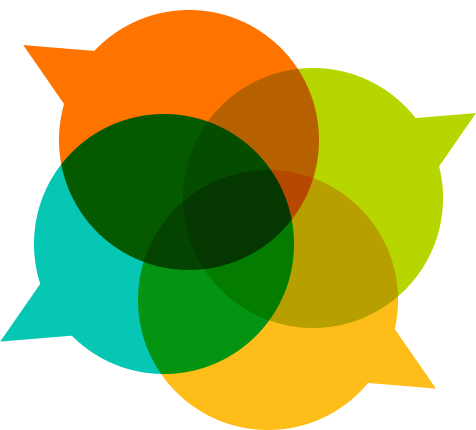Hey team–here are my thoughts about the conversation that happened in Silicon Valley last week. I am trying to be constructive and clearly outline our point-of-view. Let me know if you have feedback / ideas. @bekka this is in Wordpress for you to schedule as needed.
Specifically looking at @1L2P and @Carl for feedback here.
[caption id=“attachment_3375” align=“aligncenter” width=“640”]
Drawing credit: Nevada Lane[/caption]
What's your strongest memory of learning something new?
Was it riding a bike? Making chili? Telling a story? Getting your Google Hangout to work?
Chances are, that learning experience had three elements: other people, ideas and expertise. Put another way, that’s the Community of Inquiry model–learning consists of social presence, cognitive presence, and teaching presence. Knowledge emerges when those pieces are in tact and interacting. We build a body of knowledge together.
In other words, the community comes first.
When it comes to learning online, P2PU has worked to re-think assessment. We wanted to recognize networked, distributed, peer-to-peer moments of learning. Moments that are social. Evidence that emerges from those interactions. Enables learning communities to form and take shape.
We co-wrote the Badges for Lifelong Learning whitepaper in 2010 because we saw Badges as a way to help build communities of practice online.
From "Experimentation" to "Implementation"
Fast forward several years to 2014 in Redwood City, California at the Summit to Reconnect Learning. My sense of the meeting was to think about the next steps for Badges, and move towards wider adoption.
I was surprised by the conversation.
While a lot of great folks are thinking about learning pathways, competency-based systems and re-thinking professional development, another cluster of words gave me pause. “Implementation” implies a top-down, hierarchical notion of learning and power. “Personalization” insinuates learners working by themselves, in a feedback system designed to recognize a correct answer instead of problem-solving. Perhaps most intriguing was the ongoing conversation about the “needs of the workforce”–as if we want to build resumes over an engaged citizenry.
Moreover, where was the community?
Badges offer a unique opportunity for learners to build knowledge themselves. Not from the premium content at textbook publishers. Not reflected by expensive standardized tests. Re-thinking assessment requires thinking through how to design and nurture a learning community. One must map out about how to engage people first.
What's Next?
At the meeting, a new Badge Alliance was announced to work on the wider ecosystem of Badges. At the same time, Pearson and the Educational Testing Service announced that they'll be adopting the Open Badges Standard--proof positive that assessment needs to be re-thought for the 21st century.
Our advice to those new Badge organizations would be:
Badges kickstarted a conversation about alternative assessment, which is ongoing and has momentum. We've been continuing to think about this issues in a series of reports about Assessment for the Web.
- Design the community first. How will learners interact with each other? Give feedback to each other? Badges do not exist in a vacuum--they stand for the interaction around skills. How will you bootstrap, maintain, and grow this community?
- Empower learners to build their own communities. Don't think in terms of learners "accessing" the community or the content. How can they make their own?
- Humanize learners to each other. How can learners share their own personalities and interests to other members of their community? These personal touches will prompt "social presence" and sustain engagement.
